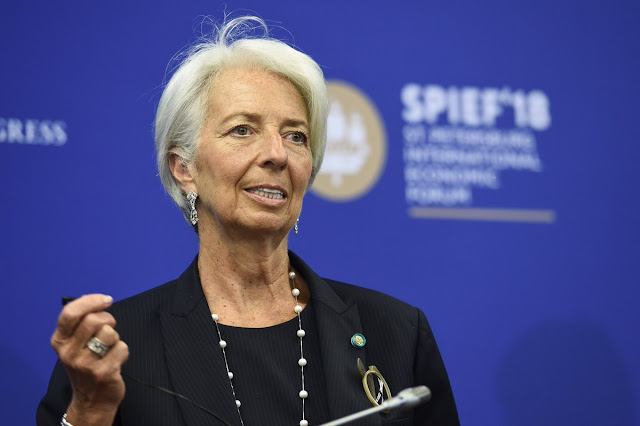Tackle Public Debt Headlong Head-on, IMF Chief Urges African Governments
Director of African Department at the International Monetary Fund (IMF), Abe Selassie, again reiterated the need for Nigeria and other African nations to tackle their mounting public debt.
A tweet via the fund’s official handle quoted Selassie on Thursday as urging Sub-Saharan Africa’s policymakers to tackle public debt head-on, taking “full advantage of the current global economic upswing.”
To achieve this, he said “policymakers must tackle public-debt vulnerabilities head-on while they can.”
In a commentary a day earlier published by www.project-syndicate.org, Selassie warned that doing nothing is no option as it “will only constrain the region’s tremendous potential to achieve sustainable and inclusive growth.”
The need for urgent action, is the pronounced rise in public debt, which at the end of 2017 averaged 57% of its GDP, representing a 20% increase in just five years.
“While this is well below the peaks of the early 2000s, the current spike is concerning,” he added, even as he agreed that government borrowing to finance public investments is an essential part of any country’s macroeconomic toolkit.
“Over the last two decades, countries in Sub-Saharan Africa have used this option often, greatly improving human development outcomes as a result. For example, between 1990 and 2015, average life expectancy increased, infant mortality rates were halved, secondary school enrollment soared, and infrastructure gaps narrowed. These and other gains would have been impossible without pragmatic spending of borrowed resources.
“But this progress could be jeopardized if current debt trends in some countries continue.”
A new report Global Debt Database, by the IMF urges nations across the globe to put in place automatic stabilizers like tax and spending that move in sync with output and employment to operate fully.
These, it said, should be complimented with driving down deficits and debts towards medium-term targets, lamenting the rising global public and private sector debt conundrum.
Africa’s burgeoning public-debt, he continues, means higher interest costs, which divert resources from education, health care, and infrastructure, hence the need to rein in on government debt in the region.
According to the report: Regional Economic Outlook for Sub-Saharan Africa, six of the region’s 35 low-income countries (LICs) are in “debt distress,” meaning they are unable to service external commitments. A further nine LICs are classified as being at “high risk of debt distress.”
“In the broadest sense, three factors account for the current debt challenges. For starters, the region’s commodity exporters, and particularly its oil exporters, were hit hard by the 2014-2016 slump in prices. Africa’s lost output and associated debt increases are comparable to the experience of advanced economies following the global financial crisis. Today, eight of the region’s fifteen debt-troubled LICs are commodity exporters.”
Most countries that funded development and infrastructure through borrowing, Selassie stressed, “have failed to generate sufficient additional tax revenues to repay that debt. In many cases, countries have not been effective at capturing the return on their investments through their tax systems.
“Finally, in many Sub-Saharan countries, portions of the debt build-up can be traced to shocks in the migration of liabilities – such as losses by state-owned enterprises – to the public-sector balance sheet and exchange-rate depreciations. In a handful of countries, poor governance can also be blamed for unsustainable debt practices.”
As a way forward, he urged African governments to improve the prospect for private investment, stressing that for decades, public expenditures offset low levels of private investment.
“But, faced with growing public-debt vulnerabilities, it is unclear how long this trend can continue. Sub-Saharan Africa’s economies should orchestrate a transition from public to private investment by strengthening regulatory and insolvency frameworks, increasing intra-African trade, and deepening access to credit.
https://investdata.com.ng/2018/05/tackle-public-debt-headlong-head-imf-chief-urges-african-governments/#more




Comments
Post a Comment